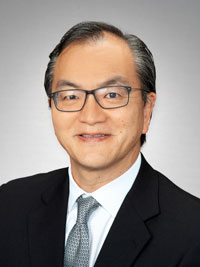AUA 2025 Meeting – LAB Recapby Tetsuro Sakai, MD, PhD, MHA, FASA At the 2025 Association of University Anesthesiologists (AUA) Annual Meeting, a compelling Leadership Advisory Board (LAB) panel discussion titled "Rediscovering Joy in Academic Anesthesiology: Strategies for Professional Fulfillment" took center stage, offering practical insights into combatting burnout and reigniting meaning and purpose in academic medicine. Moderated by Dr. Ted Sakai (LAB Chair), the session brought together three national thought leaders across anesthesiology and psychiatry, each offering evidence-based strategies to help clinicians thrive. Why This Session Mattered Panel Highlights and Presentations: Dr. Elizabeth Duggan Dr. Duggan explored the complex interplay between general well-being and workplace well-being, emphasizing that while they are closely related, workplace-specific influences such as value alignment, leadership style, and task variety play a significant role. She introduced a variety of validated tools, including the Stanford Professional Fulfillment Index (PFI) and the Well-Being Influencers of Healthcare (WISH) survey, for assessing well-being in clinical settings. Her presentation underscored the importance of meaning at work—highlighting that individuals who perceive their work as purposeful report greater psychological resilience, vocational clarity, and institutional trust. Dr. Shahla Siddiqui Dr. Siddiqui presented findings from a national survey of critical care anesthesiologists that revealed striking variability in professional fulfillment. The data showed that those over 45 years old, those with reduced ICU coverage, and those in leadership roles like medical directors reported significantly higher levels of fulfillment. Key stressors identified included 24/7 ICU availability, staffing shortages, and high patient complexity. In contrast, perceived public appreciation during the COVID-19 pandemic emerged as a potential buffer against burnout. Dr. Siddiqui framed “ikigai”—the Japanese concept of life purpose—as a useful lens through which to rediscover meaning in academic medicine. Dr. Ashwini Nadkarni Dr. Nadkarni delivered a powerful presentation linking professional fulfillment to professionalism itself. Drawing on concepts like "moral injury" and "culture of reciprocity," she argued that clinician well-being is foundational to maintaining ethical practice and compassionate care. She outlined a five-step roadmap toward fulfillment: 1. Self-awareness – through validated tools like the Maslach Burnout Inventory
2. Mental health support – including therapy and alternative wellness modalities
3. Coaching – to build emotional intelligence and leadership skills
4. Mentorship and sponsorship – both psychosocial and strategic
5. Peer support through Balint groups – to foster values alignment and emotional resilience
She stressed that professional joy and humanistic care are deeply interdependent, and academic institutions must create environments where both can thrive. Key Takeaways and Institutional Action
This LAB panel not only highlighted the urgency of addressing burnout in academic anesthesiology but also offered a hopeful vision: with strategic, evidence-based efforts, academic departments can foster environments where physicians don't just survive—but truly flourish. Honoring Excellence in Anesthesiology: Congratulations to Our AUA Awardees! Recipient of the 2025 IDEAL Award — Dr. Sophia P. Poorsattar
Assistant Clinical Professor, UCLA Dr. Sophia Poorsattar has been honored with the 2025 Inclusion, Diversity, Equity, Acceptance, and Leadership (IDEAL) Award for her transformative efforts in promoting health equity and inclusion within anesthesiology. At UCLA, she has spearheaded initiatives such as the Health Equity Curriculum and has led the innovative “Project Lead the Way,” inspiring hundreds of underrepresented high school students to pursue careers in STEMM. Her impact reaches from the local community to national platforms, and her leadership has been recognized by professional societies and even state legislators. Recipient of the 2025 Mentoring Award — Dr. Pratik Pandharipande A visionary mentor and internationally recognized physician-scientist, Dr. Pratik Pandharipande is the recipient of the 2025 AUA Mentoring Award. His unparalleled mentorship has guided numerous mentees to academic success, NIH funding, and leadership roles across anesthesiology, surgery, and critical care. As co-director of the world-renowned Critical Illness, Brain Dysfunction, and Survivorship (CIBS) Center, Dr. Pandharipande has cultivated a legacy of excellence in research, career development, and faculty advancement that continues to shape the future of academic medicine. Please join us in congratulating Drs. Poorsattar and Pandharipande on these well-deserved honors. Their leadership and dedication continue to inspire our community and elevate the field of anesthesiology. Author
|


